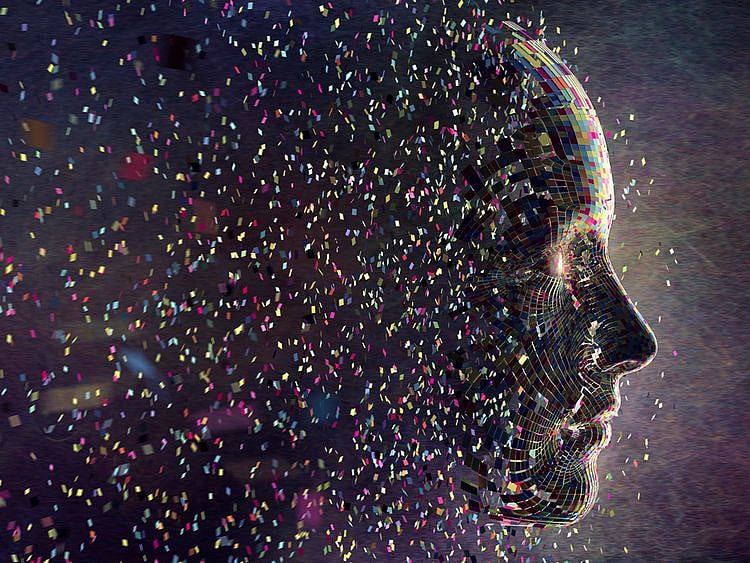Machine learning is already infiltrating our lives. It’s used to improve the quality of photos taken by our smartphones, AI is utilised by digital assistants such as Amazon’s Alexa and it’s been employed by Netflix to suggest what we should watch next. AI has also revolutionised the world of healthcare.
Ask Dr Mohammed Al Redha, Director of Project Management Office and Informatics and Smart Health, DHA, about the significance of AI and if it will have a big impact on healthcare and his answer is affirmative.
“I think AI will change the way we do things. It will change the way people study medicine and it will change the way that people receive healthcare in a way that nobody has seen before. AI will also reduce the amount of time you have to wait for things to get done in healthcare.”
Although AI is indeed set to change healthcare as we know it, the tech is already in use in healthcare, including at DHA. Dr Redha cites three areas where it has successfully implemented the technology — chest X-rays for medical tests, retinal scans for diabetes patients and 3D printing for prosthetics.
3D printing
In June last year, Fahad Mohammed Ali, an Emirati Paralympian champion in his mid-twenties, approached DHA about the possibility of having prosthetic legs created for him. “He approached us to make prosthetic legs for him so we used AI technology to create an image of how his natural leg would look and then we worked backwards to develop the prosthetic,” says Dr Redha.
“Previous prosthetics did not match the look of patients’ natural bodies. They did the job but they didn’t do it that well. With a 3D-printed prosthetic leg, using AI, we improved the results.
“The AI was used to compare Fahad’s measurements against other measurements it had downloaded from its database. For example, it took into consideration things such as his height and his width and it compared those with a global database.”
Dr Redha has four pillars he uses to assess the viability of a project. “Firstly we assess if the technology can provide a better quality solution to a service. Secondly, we look at if it reduces costs and thirdly, we assess if it reduces patient waiting times. The fourth pillar we assess is if the technology reduces manpower.” One such project that passed these criteria was chest X-ray screenings that are carried out for expat visas at DHA medical centres. “With the chest X-rays, we chose one of our medical fitness centres that carries out huge volumes of chest X-rays every day. We taught a machine, hence the name machine learning, how to recognise a normal X-ray from an abnormal X-ray. The machine did very well.
“We then brought in more X-rays to see if we could teach the machine to diagnose medical issues from the X-rays.”
The AI system achieves accuracy rates of 95 per cent and reduces the doctors’ workloads considerably, which allows them to concentrate on more complex medical cases.
Diabetes retinal scans
Another area where DHA has used AI is for retinal scans for diabetics. “We worked with the Dubai Diabetes Centre and the Ophthalmology department in Dubai Hospital,” says Dr Redha. “In the UAE we have a 19 per cent rate of diabetes so we see a lot of diabetes patients. Each diabetic needs a number retinal scans. Diabetes damages many parts of the body and one of these parts is the retina, leading to retinopathy.”
Each diabetic requires pictures of each eye to be taken on a quarterly basis. Previously, the digital images were emailed to ophthalmologists on a secure network and it could take as long as four days before the doctors could deliver the results. “In comparison, the algorithm was able to provide the results within 10 minutes,” explains Dr Redha. “The accuracy for the algorithm was also very high, at more than 97 per cent.”
The future
With AI already being used to analyse DNA, its potential to transform the field of medicine and healthcare is already a reality. Researchers are already using algorithms to sequence and analyse human DNA, allowing them to predict what diseases or conditions people’s genes make them susceptible too and what mutations may cause diseases in the future.
While AI’s positive medical implications are enormous, there are also concerns that such powerful knowledge could eventually be used to identify people’s suitability for jobs or even select them on the basis of genetic competency or their susceptibility to disease. Dr Redha recognises this and believes that it’s important to maintain ethical standards as the technology advances and becomes more widely available. “You have to assess the ethical values of a project. Firstly, AI may be looking at a lot of confidential data. For example, you wouldn’t be sharing your DNA information on the internet.
“Research has to continue and I support the improvement of medicine but I also think that checking the ethical values is extremely important. A lot of this technology is unexplored ground so you have to be very careful moving forward.”
Sign up for the Daily Briefing
Get the latest news and updates straight to your inbox
Network Links
GN StoreDownload our app
© Al Nisr Publishing LLC 2026. All rights reserved.
